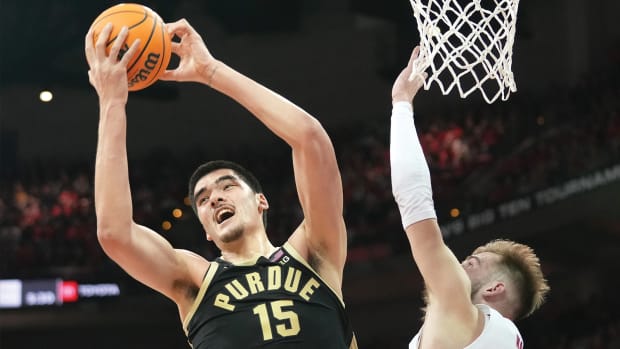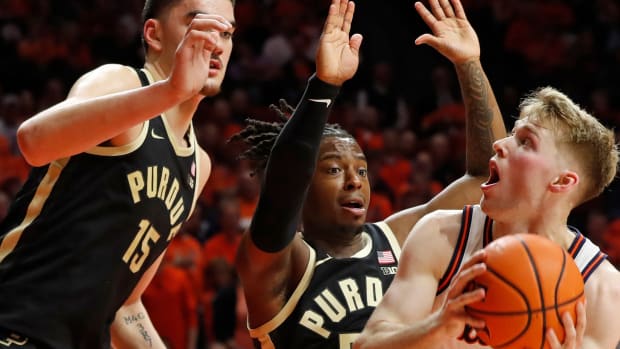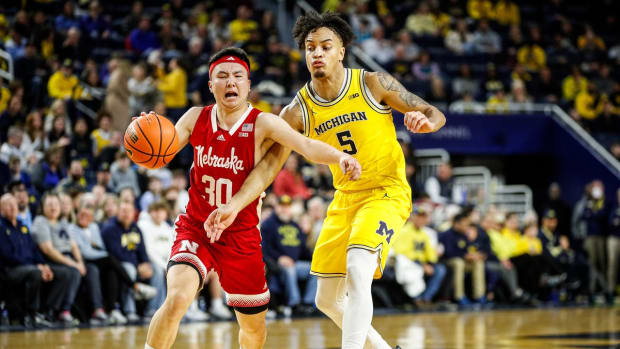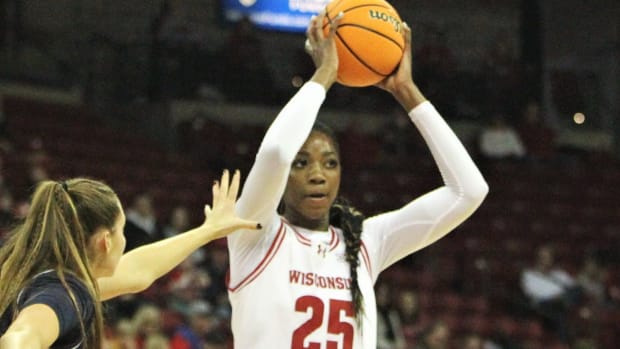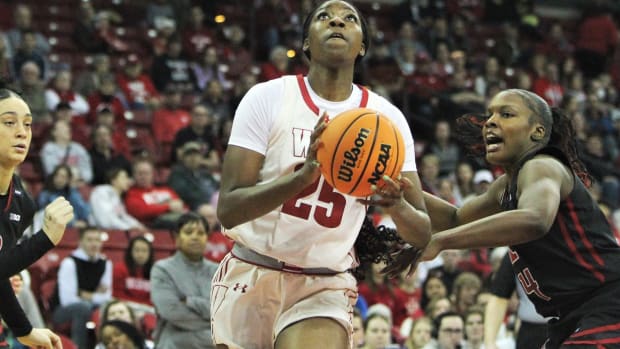Catching Up with Former Wisconsin Center Brian Butch (Part 1)
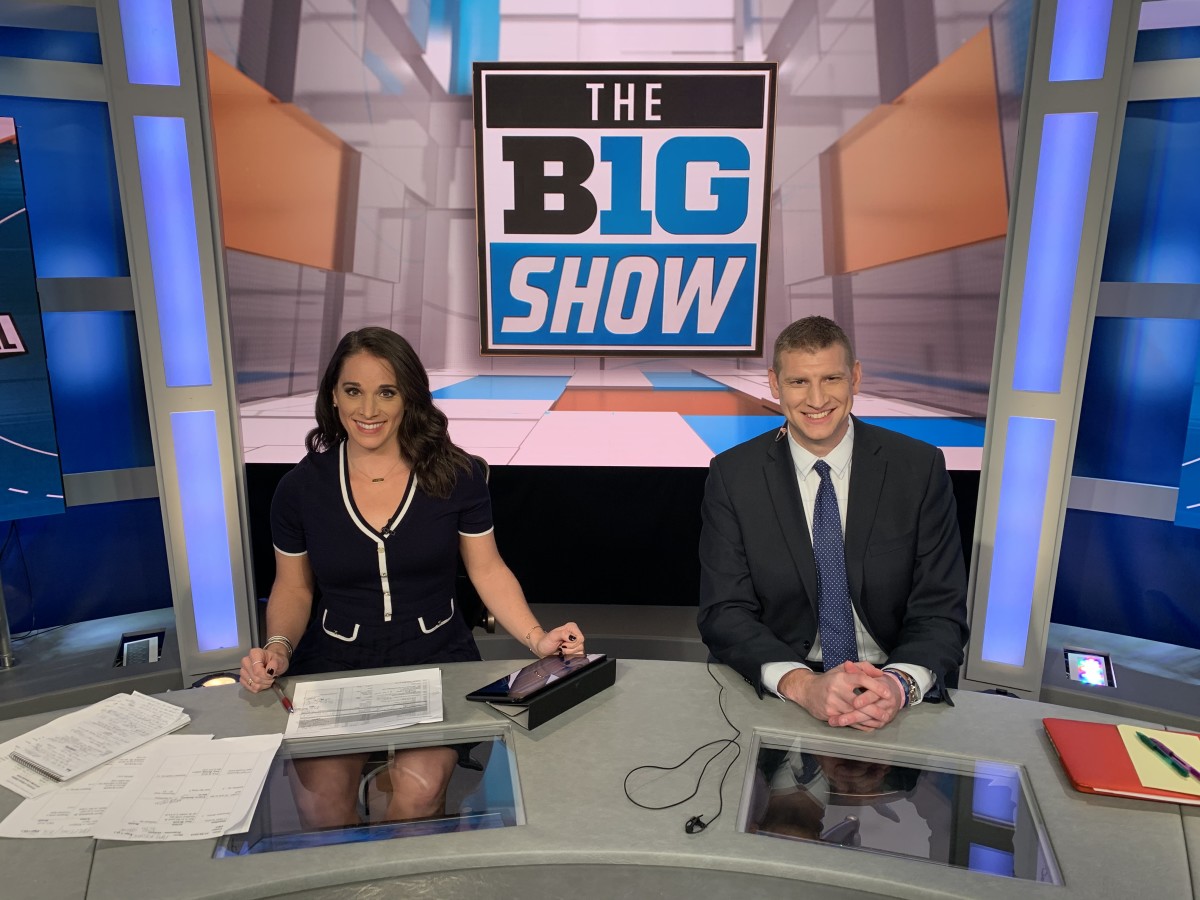
AllBadgers.com looks at some former Wisconsin standouts, and just what exactly they are currently up to after their Badger-playing days were over.
After playing about a decade at the professional level both abroad and in the continental United States, Brian Butch continues to stay connected to the game of basketball in a variety of ways.
Not only does the former Badger chat about the sport in the media, but he also helps the next generation of players with his Brian Butch Basketball Camps.
Butch currently is a co-host on WSCO's morning show "B.J. and the Bear" alongside B.J. DeGroot up in the Oshkosh/Appleton area. He also can be heard on iHeart radio within the state, has been a fill in with Mike Heller for the national Rich Eisen Show, and served as an analyst for the NBA G-League's Wisconsin Herd. Recently, the former big man started work as an analyst for the Big Ten basketball season.
DeGroot pointed to Butch's growth in this field just by the evidence seen in the past three years.
"He came on wanting to do games. Next thing you know, we're doing an afternoon show that gets moved to a morning drive show," DeGroot told AllBadgers.com last week. "Those are all steps that have happened in what, less than three years, (and) this year jumping on with the Big Ten Network who reached out and were interested."
This is part one of the Q&A between AllBadgers.com and Butch from a couple of weeks ago. We will touch base on his media career and adjustments between media, along with giving back to the game with his camps.
The interview has been edited lightly for clarity and length.
When did you start doing the radio show with B.J. and what were some of the adjustments he had to make?
Butch: “For me ... I was able to play professionally for 10 years overseas a little bit, in the G league, all over the place. A little bit in the NBA and then obviously blew out both of my knees and that kind of ended it, but was able to get healthy enough where I was able to go overseas, play for 10 years. So coming back, the Wisconsin Herd were in Oshkosh and I knew the head coach, I reached out to Dave Dean, the general manager, and got into the coaching side of it. While I was home, one of the things that I reached out to was I wanted to call some high school games on the radio. Wanted to kind of get into the broadcast field that way so I started doing that. I reached out to Justin Hull and he got me on some games. So I started calling some games and then that led to, ‘Hey, do you want to an afternoon show,’ which was from 2-3 (p.m.). That led to, 'Hey, do you and B.J. want to do a morning show from 6-8 (a.m.)?
"That's kind of how the broadcasting side started, and continuing to be able to do that has led to the iHeart (Radio) stuff. Then obviously the broadcasting side of it. I get my foot wet in that a little bit, kind of led to the Big Ten Network, so that's kind of where I'm at.
"As far as the adjustments that I've needed to do, I really watched a bunch of football. Obviously I know the game of basketball playing it. The area that I was really, really weak in was baseball. Was never a huge baseball fan, and that's what people think you can do is (that) it's easy to get up and talk every single day about your wheelhouse. That's easy. Anybody can do that, but I needed to really dive into baseball and start to learn the game more, start to learn the Brewers and really try to teach myself and read a whole bunch. That's what I've done, and I've informed myself and I've made myself really a baseball guy. Then we have fun -- so it's what's going on in life in that and then kind of combining sports with both of that. So that's why I think it works.”
As a basketball analyst, what did you have to learn about TV or radio in terms of breaks, coming back from commercials, rhythm, flow, complementing the play-by-play?
Butch: “Obviously radio is different. You can't talk as much. TV, there's a picture so you can talk, but you can't talk too long so it's trying to find that happy medium. … For me, the toughest part of the broadcast side of it was all the other things that went (into it). When I could just talk about the game and break down the game, that's what being a coach for the Wisconsin Herd (the) last couple of years, or two years prior to this, was good because I was able to see it through a different lens. I was able to have to get that message across to young kids, and I still call them kids at the G-league. They're not, but it's one of those things where you're still trying to teach them so you've got to say it in different ways for each individual to make sure it works for them.
“So having that experience was really, really good. But it was kind of coming out and your opens when you got the camera on you (for television), what do you want to focus on there? Your breaks -- to know when the breaks are coming, to know if it's a replay. If it's a replay, the analyst takes it. If it's not a replay, the play-by-play guy takes it. So those are all things for me that were all new to me. I've never experienced it. You kind of get thrown into the fire, and you’ve got to figure it out.
"Now I'll say this, the Big Ten Network is fantastic. The feedback they give is excellent. They're there to help you grow, and that's what I love so much about it. ... I've been very fortunate to have the guidance from those guys at the Big Ten Network because it's given me an opportunity to grow in something that I'm extremely passionate about and that's the game. I think you're able to do that through radio. I think you're able to do it through TV better. You're able to talk through the game because people have a visual. On the radio, you're still trying to talk through the game, but your delivery has to be different because you're trying to explain something that not everybody saw. So you've got to make sure you're getting to the point, and you're really doing a good job of explaining some actions. Because (on) the radio, they don't have the visual side of it.”
On Friday, AllBadgers.com will release the second part of the Q&A that discusses more about the radio side and his basketball camps.

